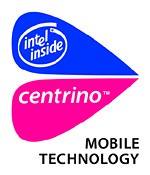
| Home of Wireless Applications |

|
Daily Newsletter
|
 |
Latest Mobile Phones
Could Be The Best Medicine
Healthcare and mobile phones are usually only mentioned in the same sentence
during debates about the safety of handsets and masts. This could change
over the coming years according to a report just published by the Cambridge
based consultancy Wireless Healthcare. The report suggests mobile operators
could play a key role in providing public healthcare services.
Derek Wanless, an advisor to the UK government, has highlighted the need for a fully engaged healthcare scenario within which public health becomes the responsibility of a diverse range of organisations as well as the individual. Wireless Healthcare believes that when subscribers gain access to mobile phones that can interact with other wireless devices mobile operators could become key players in a fully engaged healthcare scenario.
Existing mobile services, such as video and text messaging are heavily marketed to people in their late teens and early twenties - the report notes that while mobile operators have access to the youth market healthcare providers find it difficult to reach this particular demographic group.
The report. "Mobile Operators - Fully Engaged," identifies three areas where mobile healthcare services are applicable within a fully engaged healthcare scenario:-
Supplying Dietary Information.
Some food stores have already installed hand held wireless scanners that enable shoppers to scan products. These devices are also capable of providing the consumer with dietary information and highlighting products that might cause an allergic reaction. Wireless Healthcare believes a similar service could run over a mobile network with independent vendors supplying dietary information on a wide range of food products. These vendors could make shoppers aware of the sugar, fat or salt contents of products. This type of service could also monitor the user's compliance with a weight loss plan. The report sees the arrival of RFID labelling and scanning devices that can be used with mobile handsets as key drivers in this market.
Fitness and Training.
Smart mobile handsets could be used to upload training programs into exercise equipment. They could also be used to download performance data and monitor compliance with exercise plans. Users could compare their performance with that of other members of a peer group. This service could prove particularly compelling and profitable. It would also exploit the mobile operator's access to young people - whose lack of physical activity is worrying policymakers in the healthcare sector.
Health Monitoring.
Unlike a fixed line service, a mobile phone usually has just one unique user who keeps the handset within reach throughout the day. A mobile phone, therefore, would make an ideal gateway between a range of wireless monitoring devices and a GSM or GPRS network. The report identifies technologies - such as wireless enabled scales and blood pressure monitors - that are essential for a mobile patient monitoring services. Health monitoring services would be used to monitor compliance with diets and healthcare plans and gather data prior to a patient's visit to their GP.
Wireless Healthcare has published their report in advance of next week's
Healthcare Computing conference in Harrogate. As the reports author, Peter
Kruger, states. "Although there is a growing interest in mobile services
within the healthcare sector we feel it is unlikely the NHS will pioneer
the use of mobile healthcare services. Disease prevention is an area where
the NHS is particularly weak. A fully engaged healthcare scenario will
see a diverse range of organisations, such as food retailers, fitness
clubs and even mobile phone operators marketing healthcare orientated
services to
their customers."
Copyright
2004 © Vovida Research, All rights reserved.